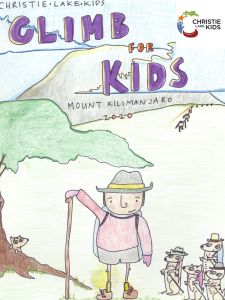I think it might be good if we all introduce our perspective on things, like where we’re coming from. We all have unique places that we are at and I think it would be good for listeners to get to know some of that!
Stephen Hurley
This is beginning to take shape. We have a name for our political voice podcast – Class Struggle thanks to Heather Swail and several co-hosts – Heather Swail, Derek Rhodenizer and Stephen Hurley. Stephen has made the suggestion that we all make our views and background known to listeners so our bias is evident. We are planning to do this on our first podcast next Thursday, December 27th at 8:00PM.
While this will be an interesting ‘live’ experiment, I think it would be a great idea to put down here some of our thoughts and ideas on where we are coming from. It takes a while to figure this out and at least for me I do better writing down some of these ideas first. If the other co-hosts want to do the same I will roll out their ideas here as part of this post.
I will start. My political beliefs are informed first by my faith. It is hard to believe this is still true because I no longer attend church on any regular basis, but I was brought up Catholic and I taught in the Catholic system for 31 years. Within that structure, I was mainly influenced by Catholic Social Teaching and the life and struggles of Archbishop Oscar Romero, a cleric and martyr from El Salvador who was canonized just a few months ago.
What was truly formative for me have been my travels to Latin America with students and teachers. Over the past twenty years, I have travelled there many times and I have learned lots about poverty, injustice and the abuse of power by the privileged.
All of this has given me a strong sense of community and a better appreciation of the importance of speaking out against hypocrisy and injustice. Working at my last school, St. Anthony here in Ottawa gave me a wonderful opportunity to put some of these beliefs into practice. It also led to lots of run-ins with my superiors which eventually led to my retirement. There was more work to do at my school, but it was becoming increasingly difficult to work for an organization that valued compliance over social justice.
Now I have been retired for two years and I have spoken out much more since that time. The issues I write about are diverse, but anything that smacks of injustice and the abuse of power catches my attention. Apart from writing, I try to do something positive by supporting Christie Lake Kids, an organization here in Ottawa that works to transform the lives of low-income children through recreation, arts and leadership programs.
I do think that teachers have a duty to speak out. We as educators play a unique role in a democratic society. We are responsible for passing on to a new generation the laws, customs and beliefs of our society. We are leaders by the very fact that we hold such an immense responsibility to the youth in our society.
This view is not shared by our large corporate-like school boards. Loyalty means to be silent and compliance is the key. I think we are selling our educators short in this corporate culture and teachers need to have the freedom to express their opinions and speak out against injustice when they see it.
That is where I am coming from and I hope in our new show we will tackle some of the big political issues that swirl around us in this society. Maybe not all educators see this as a role we should assume. That is fine, but I would love to hear people actually say this.
I will keep this blog rolling out new comments from now until our first podcast this Thursday. You can write a comment at the end of this blog or DM me and I will add your material to this post. This sometimes can actually change the nature of a blog post. I am all for that – the voice of educators is so important – let it be heard.
This being a rolling blog, I am adding comments directly to this post. Here is a comment from co-host Heather Swail.
Heather Swail here. My political ideas and opinions were at first informed by school and community. I too was educated in the Catholic system. A number of my high school teachers were CND active or former sisters who were very involved in the lives of the disadvantaged in Montreal; at least three of my teachers had lived in Central America and followed and spoke about liberation theology and social justice. Their few stories – they were humble about their experiences – and the videos and news items they showed us inspired me to learn more about the world and to study politics in university. I did an MA in Public Administration in social policy and knew that my vocation was to work in the public or community sectors. Since my 20’s I have participated in community projects and initiatives that have attempted to develop opportunities for those with little power. I was approached once to run as a school trustee, but was not interested in that life, especially with a young family. My style typically is more diplomatic and questioning, rather than pedantic and being on the podium (family members may have a different opinion!)
I have been formed as much as by what I heard, learned and witnessed, as by what I did not hear. Ours was not a political family, neither parent spoke about politics. But there was a strong current within the larger family of pro-status quo and business. On a few occasions, when young, I was told not to ask so many questions. Paul and I raised our children to be aware of politics and inequalities. Perhaps too much at times, they would remind us.
Now, as an educator of 12- and 13-year olds, I prefer to ask questions and see where kids go with their observations and answers. I am more of a storyteller than a lecturer, I think. I will directly instruct about contentious or difficult issues and then ask students to explore further. By exposing younger people to information about what is going on in this world – good and bad – I am giving them the chance to see beyond what is apparent and certain. Children this age are very passionate about equality and justice – they just need help finding the stories.
Adding to our post is Stephen Hurley. We now have three of our hosts writing about brings them to this podcast.
I’m Stephen Hurley and, after retiring from 30 years of teaching with Ontario’s Dufferin Peel District School Board, I continue to be passionate about the conversations in education.
When it comes to teacher voice, I have some very specific ideas, but I look forward to this voicEd Radio series in order that these ideas might be challenged, deepened and, quite possibly, modified.
I have to admit that I have always resisted any monolithic characterization of voices in education. I bristle when politicians, union leaders and others make blanket statements like, “Teachers believe this” or “our members will actively fight for this.” I understand the efficiency and even the effectiveness of making statements like this but, for me, they undermine the fact that everyone who walks this planet has a unique perspective that is formed over the course of a lifetime by myriad events, experiences and encounters.
I think that, if we’re going to take the idea of teacher voice seriously, especially in the public square, we have to be prepared to make space for the individual stories that give way to a sense of subtlety and nuance. Our current conversations in education, especially at the political level, are not informed by these subtleties and shades of gray.
I look forward to entering into the Class Struggle conversations on which we are about to embark. I look forward to the honesty, the discomfort and even the disagreement that comes from opening up a space like this.




















